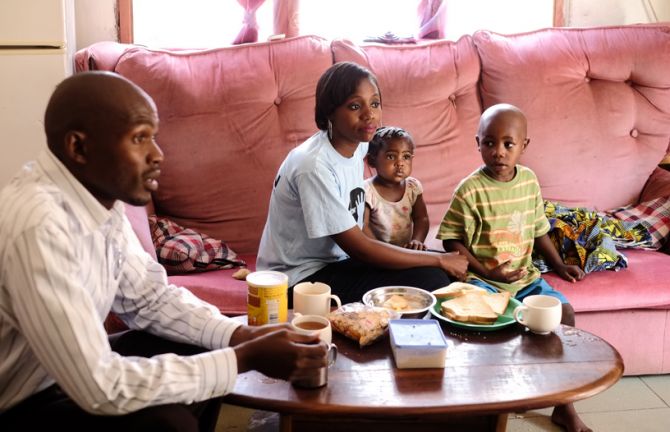

Update
Ensuring quality care at home for children affected by HIV
26 February 2016
26 February 2016 26 February 2016A strong, efficient and supported workforce in health-care facilities is essential for providing effective HIV services to people living with HIV. However, the needs of family carers, home-based carers and community carers are often overlooked. UNAIDS recently co-hosted a meeting with the Coalition for Children Affected by AIDS in collaboration with the United Nations Children's Fund to explore how to address the specialized needs of home carers caring for children affected by HIV.
Countries have made rapid progress in reducing mother-to-child transmission of HIV—new HIV infections among children globally declined by 58% between 2000 and 2014. However, globally only 32% of children living with HIV have access to antiretroviral therapy and without a strong family and support system children will be left behind.
The meeting aimed to address the important issues facing families and communities caring for children within a home setting and was driven by concern about the lack of age-appropriate, evidence-informed HIV policy, programming and implementation. It recognized the urgent need to empower parental figures and caregivers. The participants discussed their experiences and best practices to be shared with donors, implementers and activists in order to better support home caregivers.
The consultation was hosted in collaboration with the Partnership for Maternal and Child Health, and the Regional Inter-Agency Task Team on Children in Eastern and Southern Africa. It brought together nearly 60 experts in child health and development, including representatives of civil society, implementers, scientists, funders and activists.
Deputy Executive Director of UNAIDS Luiz Loures encouraged the participants to proactively engage in the United Nations General Assembly High-Level Meeting on Ending AIDS, which is to be held in New York, United States of America, from 8 to 10 June 2016.
Quotes
“In efforts to leave no child behind at any time in their lives, we must consider a life course approach—one that enables caregivers to support children from birth right through to adolescence and early adulthood.”



